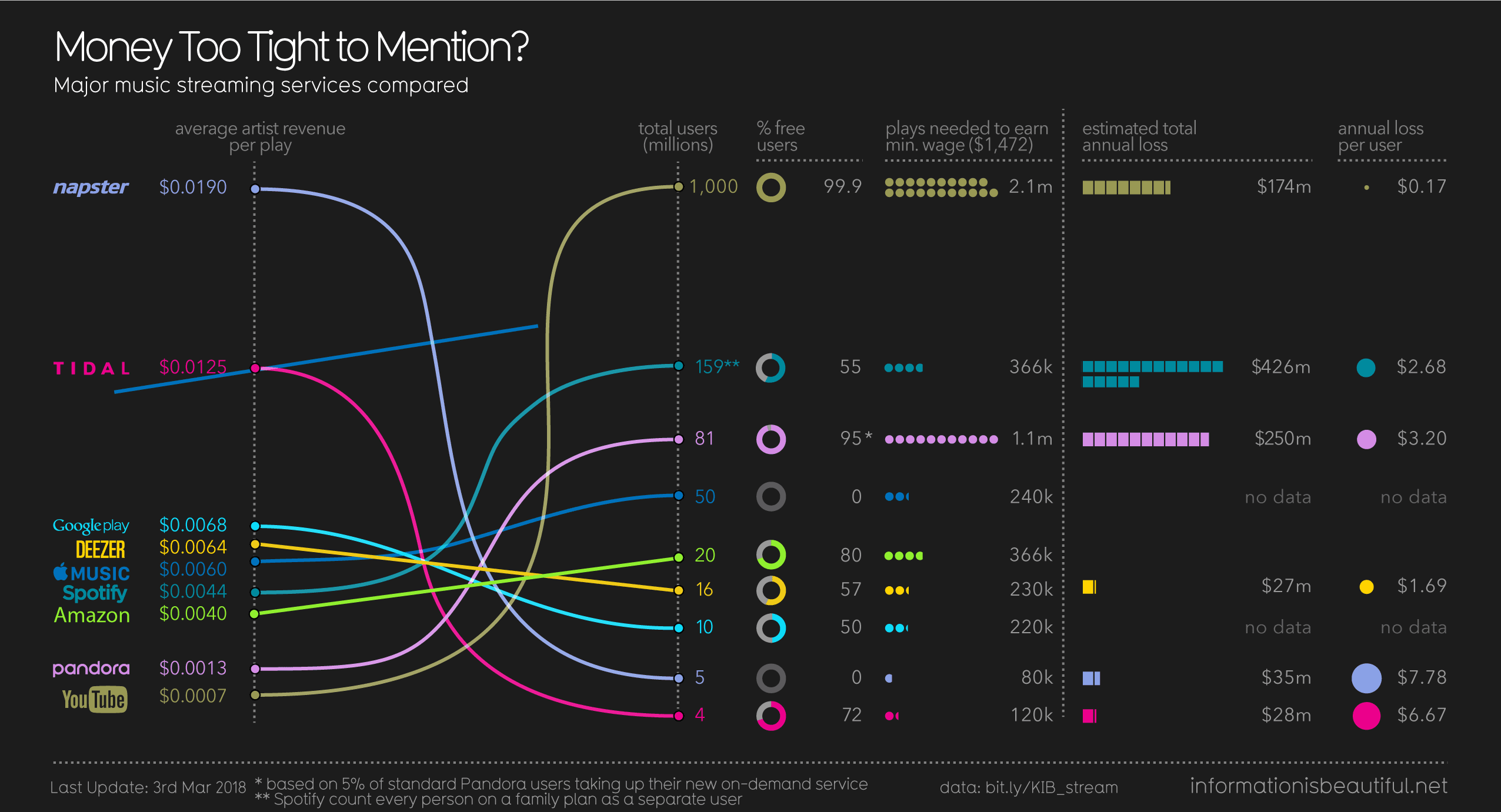Guest post by Patrick McGuire. This article originally appeared on Soundfly’s Flypaper
For some, it’s the ability to pay one’s bills exclusively through making music. Others think they’ll find it once their songs hit a certain number of plays over streaming platforms, or once they sell out of a run of physical copies of a new album. I personally love being on the road, and am always striving to feel like the crowd out there is really excited to see me play my music. That’s when I feel truly successful.
Success means something different to every musician, but one thing is clear: Musical success is no longer, and may never again be, what it used to be. I’ve been thinking about this question a lot, what success really means right now. Here are my thoughts on the matter.
More music, more problems.
In case you’ve marooned yourself somewhere extremely remote without internet and haven’t noticed, there’s a whole lot of new music being made today. Recently, Spotify founder Daniel Ek estimated that an astounding 40,000 new tracks are being uploaded to the platform each day, twice the amount he mentioned in an interview only a year ago. This unfathomable amount of new music translates to immense competition for small, unestablished artists who have to contend with one another.
The explosion in releases isn’t keeping musicians from achieving traditional success in their work, but it is making it harder to come by. Musicians now need to think like entrepreneurs in a saturated, quick-changing market. They need to be poised to look both inward at their art and outward at the industry. It’s exciting and scary; and it’s definitely no walk in the park.
Traditional definitions of musical success no longer apply in 2019’s evolving industry climate.
Artists today can rack up millions of plays over streaming platforms and still not “feel” successful. This is because loads of streams don’t necessarily translate to living wages, especially after labels and managers take their cut. But how weird is that?
A beautiful, informative, yet distressing infographic created by Information Is Beautifultallied up the amount of plays artists typically need to generate through major streaming platforms to earn minimum wage.

It’s not pretty. To make a living wage with songs streamed over YouTube, you’d need to rack up 2.1 million monthly plays. For Spotify and Amazon, you’d need 366,000. If you’re relying on the ability to earn decent money to feel successful, your music is going to have to perform increasingly and exceptionally well to do so.
The numbers can be more than a little misleading for artists who tend to gauge their sense of success through video views and play counts. Plays don’t necessarily mean money, album sales, paid downloads, or meaningful interest of any kind from fans for that matter. In a musical climate obsessed with playlists that oscillate from single to single, band to fan relationships are becoming more digital, cold, distant, and inconsistent.
On the other hand, having loads of adoring fans around the world is what many musicians might rightfully consider a signifier of musical success, and knowing they have that via playlists or play metrics is certainly emotionally valid. The only issue is that landing a spot on a popular playlist doesn’t mean one’s devoted fans will follow. Being introduced to new music by a friend, at a record store, or through a live show generates listener interest and engagement far better than playlists can. There’s a tangible connection that needs to be made between artist and listener and streaming doesn’t quite cut it.
You might be able to create incredible music, but getting audiences engaged and listening is a major challenge in 2019.
Redefining success in music.
At risk of sounding overly self-helpy, current conditions leave musicians with no other choice than to have to define success on their own terms, and I think this is a good thing. All-or-nothing attitudes in music stifle creativity and have thwarted the careers of countless musicians, but the old ways of thinking about “making it” in music are less and less fitting in today’s music industry.
“Few other things in life give me what making music does. I can always write a better song, and the hope and adventure in that makes it worth it for me.”
Can you be successful in music today without making busloads of cash and getting signed to the label of your dreams? I think so.
International fame and stardom isn’t what most musicians really want, at least in and of itself. This is good because the chances of that actually happening are hugely slim for most. But where does that leave us? What does a musician need to feel successful today?
The gut sense of creative satisfaction I feel when I make music I’m proud of is usually enough for me, and that hasn’t changed since I started writing songs 15 years ago. When I carve out time and space to make music, I feel challenged and sane and understood.
That might sound like I’m setting the bar a bit too low, but few other things in life give me what making music does. I can always write a better song, and the hope and adventure in that makes it worth it for me. Creating and sharing work I’m proud of makes me feel successful, and every once in a while things randomly happen in my career that reaffirm that feeling externally — a compliment from a stranger, someone telling me I played a great show, my song being played on the radio somewhere, etc.
Success in music might look completely different to you, and that’s okay. But no matter what it looks like, the ways you measure and define success can’t be what they were ten or even five years ago if you’re intent on making music seriously over the long-term. The music industry has fundamentally changed, so our goals and attitudes have to as well.